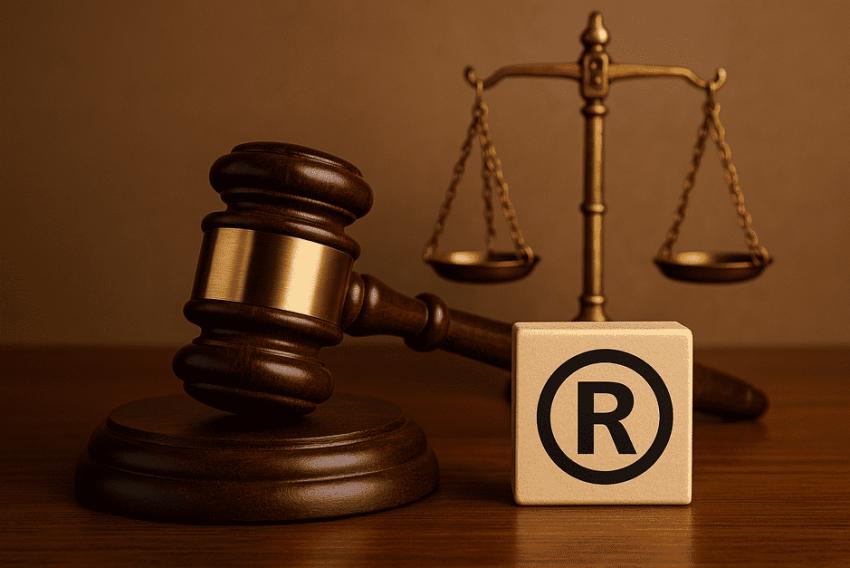
In today’s competitive marketplace, protecting your brand identity is more than just a smart move—it’s essential. Whether it’s your business name, logo, slogan, or even the unique sound that defines your company, registering a trademark gives you the exclusive legal right to use it. The Trade Mark Act in India, along with the Trade Mark Rules India, offers comprehensive protection to businesses of all sizes.
At AMD LAW INDIA, we specialize in helping clients across industries register and enforce their trademarks with ease and confidence.
What Is a Trademark?
A trademark is any distinctive symbol, word, phrase, design, or combination that distinguishes your goods or services from those of others. It is your brand’s legal identity and a powerful asset that builds consumer trust, loyalty, and recognition.
Registering your trademark under the Trade Mark Law in India ensures:
Exclusive rights to use your brand symbol
Legal protection against misuse or imitation
Enhanced market credibility
Competitive edge in branding and marketing
Legal Framework: Trade Mark Act and Rules
The Trade Mark Act in India, enacted in 1999, forms the backbone of trademark protection in the country. It replaced earlier laws and brought India in line with international trademark systems.
The Trade Mark Rules India, last updated in 2017, streamline the process of application, examination, publication, and registration. These rules have introduced e-filing, simplified forms, and clear timelines for faster and more transparent processes.
Who Can Apply for a Trademark in India?
A trademark application can be filed by:
Individuals or sole proprietors
Companies and partnerships
Trusts or societies
Foreign applicants conducting business in India
It’s important to file under the correct category with accurate documentation to avoid future disputes or delays.
What Can Be Trademarked?
Under the Trade Mark Law in India, the following can be registered:
Words or phrases
Logos or symbols
Sound marks
Color combinations
Three-dimensional shapes
Product packaging or configuration
These elements must be distinctive and not deceptively similar to existing trademarks.
Step-by-Step Process for Trademark Registration
At AMD LAW INDIA, we guide you through a hassle-free trademark registration journey:
1. Trademark Search
We conduct a comprehensive trademark search to ensure your proposed mark is unique and doesn’t infringe on any existing rights.
2. Filing the Application
The trademark application is filed online or manually with the appropriate trademark office. Required details include:
Applicant's name and address
Trademark design
Class of goods/services
Date of first use (if applicable)
3. Examination
The application is examined by the Registrar. If there are no objections, it proceeds to the publication stage. If objections are raised, we help respond with clarifications or amendments.
4. Publication in the Journal
Your trademark is published in the Trademark Journal to allow the public to raise objections within four months.
5. Registration
If no opposition arises, or after successful resolution of any objections, the mark is registered and a registration certificate is issued. The mark is now legally protected for 10 years.
Trademark Renewal and Maintenance
Trademarks are valid for 10 years and can be renewed indefinitely in 10-year increments. It’s advisable to apply for renewal before the expiry to avoid lapse and restoration procedures.
Why Register Your Trademark?
Trademark registration is not just a legal formality—it’s a strategic business decision. Here's why:
Legal Protection: Prevents others from copying or misusing your brand.
Market Identity: Builds reputation and consumer trust.
Monetary Value: Your trademark becomes an asset you can sell, license, or franchise.
Global Reach: A registered Indian trademark can help in obtaining international protection.
Enforcement of Trademark Rights
If your trademark is registered and someone uses it without permission, you can:
Send a legal notice
File a civil lawsuit for injunction and damages
Initiate criminal proceedings for trademark infringement
Lodge complaints with police authorities
Even unregistered trademarks may be protected under the common law principle of “passing off,” but registration significantly strengthens your position.
Trademark Opposition and Objections
Sometimes, your trademark may face opposition from third parties or objections from the Registrar. These situations require a strategic legal approach, including evidence, arguments, and sometimes a hearing. At AMD LAW INDIA, we offer end-to-end support in overcoming these challenges.
Why Choose AMD LAW INDIA?
Expertise in the Trade Mark Act in India and Trade Mark Rules India
End-to-end services from search to registration
Professional handling of objections, oppositions, and enforcement
Transparent and affordable pricing
Personalized support and guidance at every stage
📧 support@amdlawindia.com
📞 +91 99309 03222
Frequently Asked Questions (FAQs)
Q1. Is trademark registration mandatory in India?
No, it’s not mandatory—but it gives you legal rights and stronger protection compared to unregistered marks.
Q2. How long does it take to register a trademark in India?
If there are no objections or oppositions, the process typically takes 6–8 months.
Q3. Can I trademark a logo and a name together?
Yes, but you’ll need to file them under different applications or combined, depending on how you want protection.
Q4. What happens if someone opposes my trademark application?
You’ll have a chance to respond and present your case before the Registrar makes a decision.
Q5. What if I forget to renew my trademark?
There’s a grace period during which you can restore your trademark with penalties. But it’s best to renew on time to avoid legal issues.
Q6. Can I register a trademark before starting my business?
Yes, you can file based on your intent to use the trademark in the near future.
Conclusion
Registering a trademark under the Trade Mark Law in India is a smart move to secure your brand identity, reputation, and business assets. With the robust structure offered by the Trade Mark Act in India and the simplified process under the Trade Mark Rules India, there’s never been a better time to protect what’s yours.


